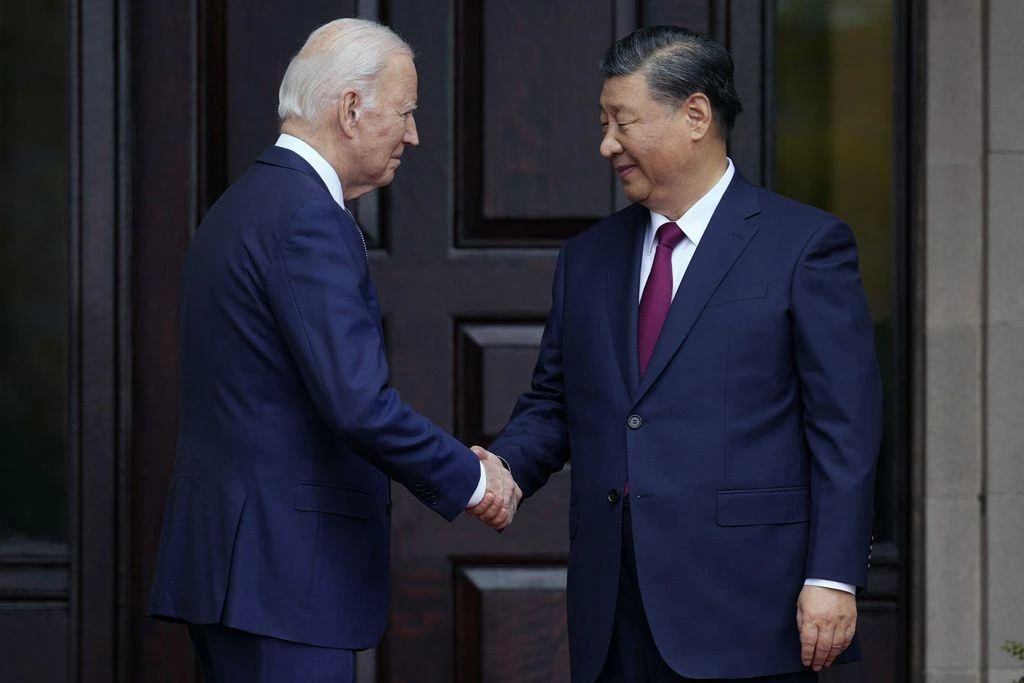Biden, Xi discuss Taiwan, AI, and security in diplomatic call

Chinese President Xi Jinping and US President Joe Biden hold constructive conversation, discussing bilateral issues such as artificial intelligence, Taiwan, and security concern
Tuesday’s lengthy conversation between Chinese President Xi Jinping and US President Joe Biden covered important bilateral subjects including artificial intelligence, Taiwan, and security concerns.
The discussion, which the White House described as “candid and constructive,” was the first official interaction between the leaders since their summit in California last November. Both countries promised at that summit to strengthen their military relations and work together to stop the influx of deadly drugs like fentanyl from China.
In the roughly 105-minute conversation, Xi underlined how crucial it is that the two nations uphold the “no clash, no confrontation” concept. He advocated putting stability first and steering clear of provocations that would inflame the situation.
With Lai Ching-te’s upcoming inauguration as the island’s president-elect, Taiwan became a major topic of conversation. Asserting his opposition to any coercive actions aimed at putting Taiwan under Beijing’s authority, Biden reiterated the United States’ long-standing “One China” policy.
Reiterating Beijing’s position that Taiwan is a local issue, Xi emphasized Beijing’s intolerance for separatist actions and outside backing for Taiwan’s independence.
Biden voiced worries about attempts to obstruct the Philippines’ resupply operations in the contested Second Thomas Shoal. The presidents also discussed China’s actions in the South China Sea.
In the near future, Biden will talk about limiting China’s influence in the area when he hosts Japanese Prime Minister Fumio Kishida and President Ferdinand Marcos Jr. of the Philippines at the White House next week.
In addition, Biden put pressure on China to carry out its pledges to stop the export of precursor chemicals and fight illicit drugs. This pledge highlights the common responsibility in combating transnational threats and was expressed during the conference last year.
In light of a recent UN resolution supported by both countries as well as more than 120 others, the discussion also focused on the potential benefits and drawbacks of sophisticated artificial intelligence.
Concerns about malevolent cyberattacks and meddling in the 2024 US elections led Biden to issue fresh cautions to Xi. Human rights concerns he brought up included minority group treatment and Hong Kong’s stringent national security statute.
Furthermore, in light of the situation in Ukraine, Biden voiced worries about China’s military connection with Russia and asked China to use its influence over North Korea.
Regarding the economy, the two leaders spoke about unfair business practices, with Biden restating US policy to safeguard US interests, which includes restricting the flow of some cutting-edge technology to China.
In recent months, Xi voiced complaints about what he saw as American economic repression, drawing attention to the growing number of Chinese firms that have been sanctioned.
Prior to her travel to China for bilateral consultations on economic matters, Treasury Secretary Janet Yellen makes the call. In response to worries about unfair trade practices, Yellen seeks to promote just treatment of American firms and workers.
The bilateral relationship is becoming more difficult as tensions between the two countries continue due to problems like Chinese ownership of the well-known social media app TikTok and American worries over Chinese auto exports.
Source: AP



